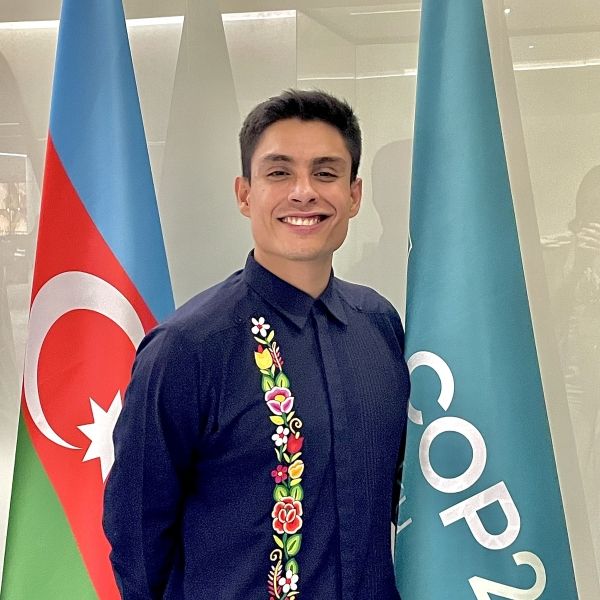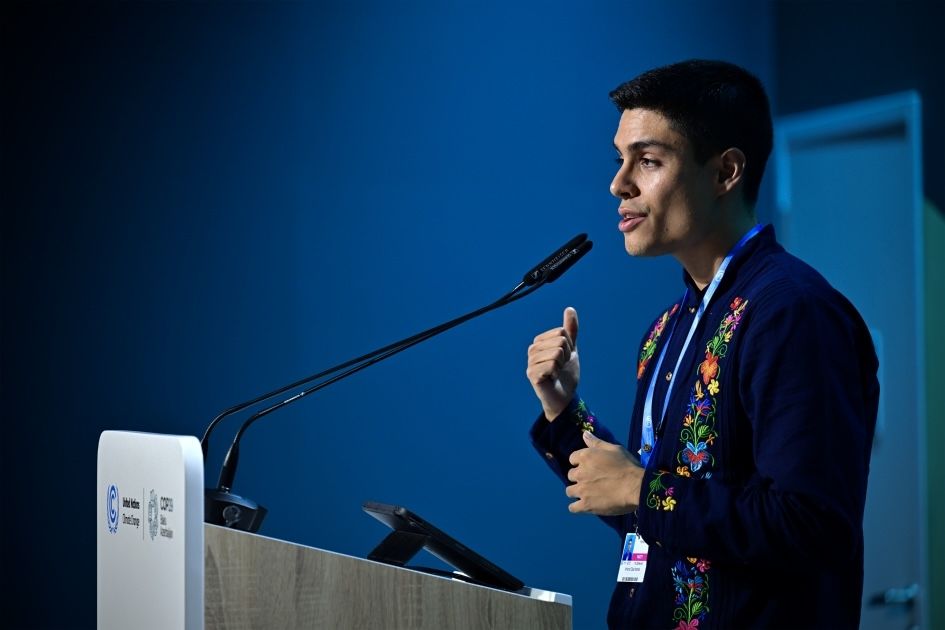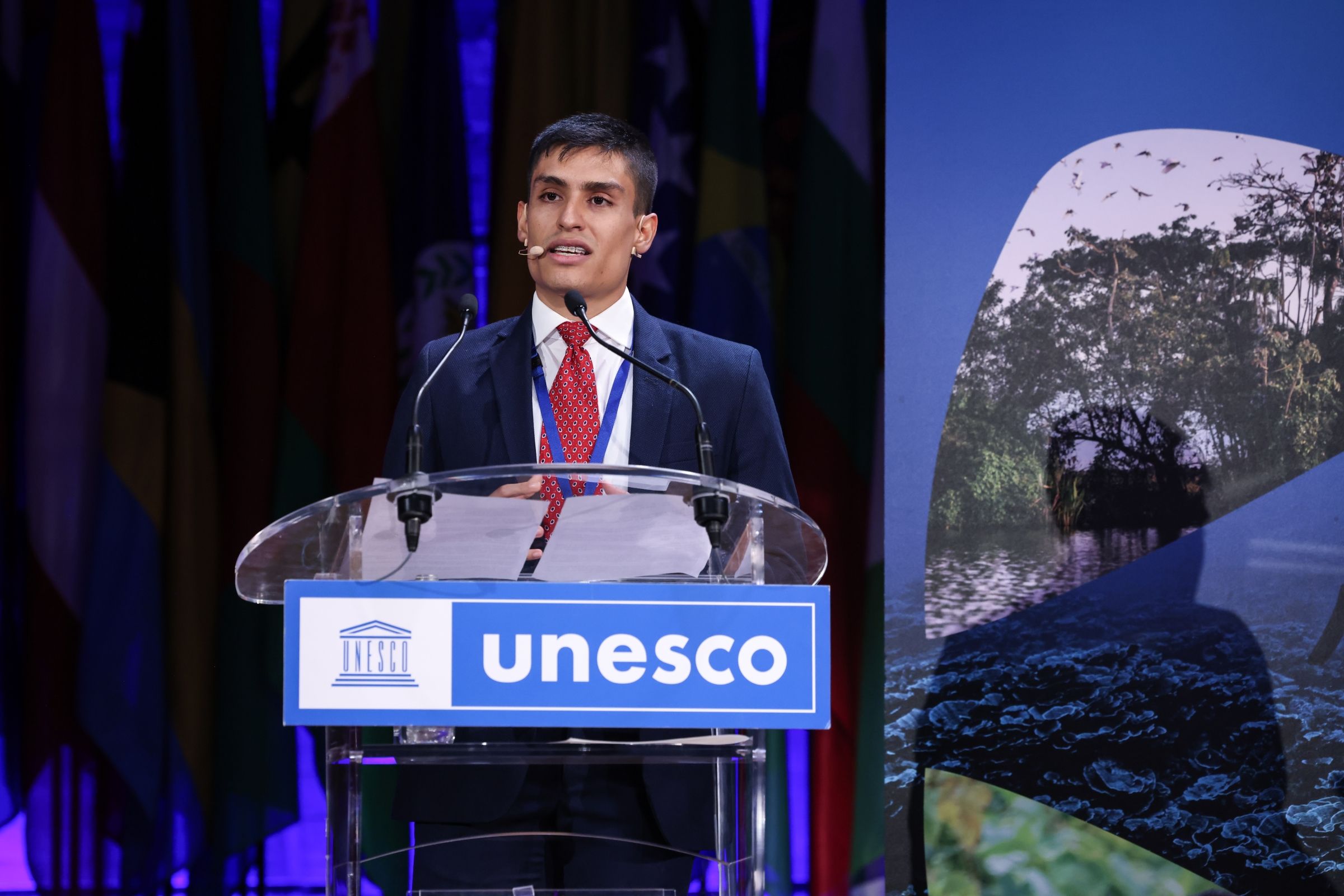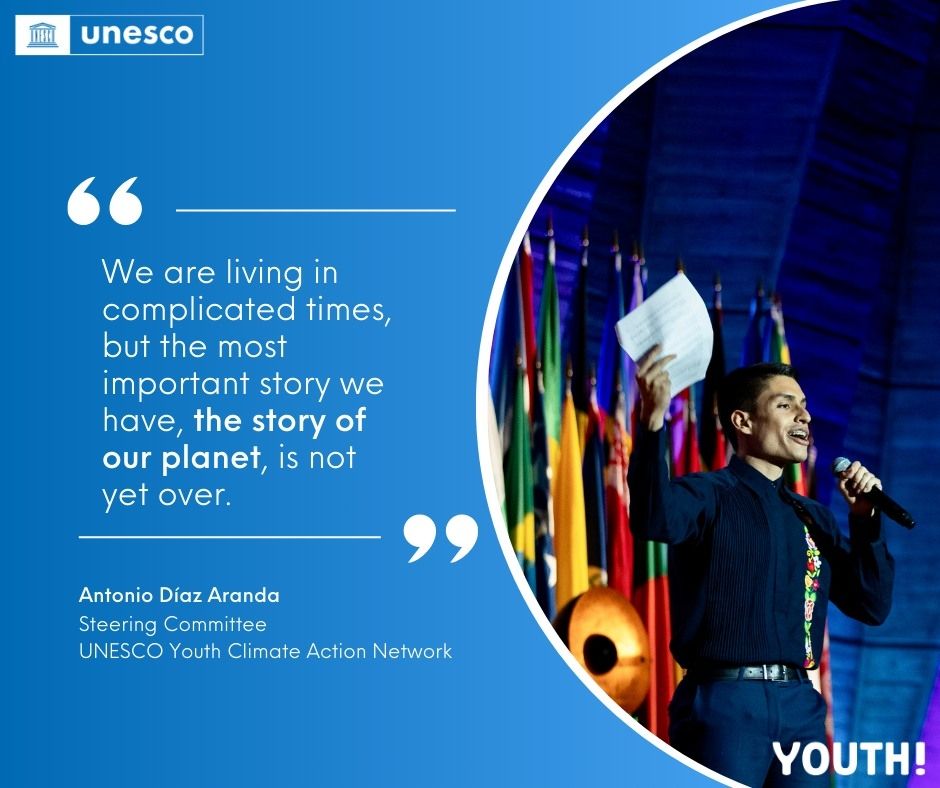Image

-
Antonio Díaz Aranda (he/him)
Steering Committee Member and Partnership Coordinator, Youth UNESCO Climate Action Network (YoU-CAN)
- 30 Under 30
- 2025
Antonio empowers youth to turn climate knowledge into action through environmental education, storytelling, and inclusive, intergenerational collaboration for a sustainable future.
Mexico, Age 27
How are you using education to build more sustainable and equitable communities? Tell us about your EE work and impact.
Through my work with UNESCO’s Youth Climate Action Network (YoU-CAN), SDSN Youth, and The Climate Reality Project, I use education as a bridge between knowledge and action. I design and deliver initiatives that equip young people with the skills to understand, communicate, and address the climate crisis through informed, community-driven solutions.
As a contributor to UNESCO’s online course, “Navigating Climate Information with Media and Information Literacy,” I help strengthen critical thinking and digital literacy, enabling learners to recognize misinformation and make evidence-based decisions. I also supported the development of UNESCO’s Greening Curriculum Guidance and Green School Quality Standard, which provides educators with practical tools to embed sustainability across learning systems.
Beyond classrooms, I lead storytelling workshops and intergenerational dialogues that empower youth and educators to co-create local climate solutions and amplify underrepresented voices. These efforts have reached hundreds of learners globally, fostering a culture of shared responsibility, empathy, and action.
Education, to me, is not only a tool for awareness—it is a catalyst for transformation, enabling communities to reimagine their relationship with nature and one another.
Tell us about your journey to where you are today. What inspired you? What has your path been like?
Coming from a small state in Mexico, my journey into climate education began with a realization—climate change was not part of my curriculum, nor my country’s priority. The only class that came close was an optional course on ecology, where the climate crisis was barely mentioned.
I had to teach myself everything—from the science of greenhouse gases to the policies shaping global negotiations. This experience opened my eyes to a deeper injustice: millions of young people still grow up without access to reliable climate education, leaving them unprepared for the realities they already face.
This gap inspired me to dedicate my work to making climate knowledge accessible, inclusive, and empowering. Through YoU-CAN, SDSN Youth and the Climate Reality Project, and youth networks, I’ve worked to bring climate education to classrooms, communities, and decision-making spaces where it was once absent.
Because the question remains: How can we achieve a just and equitable transition in a world where most youth cannot explain climate change and where voices from the Global South are still missing from the conversation? My journey is about changing that reality, one learner and one story at a time.
How can people learn more about or support your work?
People can learn more about my work by exploring UNESCO’s Youth Climate Action Network (YoU-CAN)—a platform that connects youth climate networks globally to strengthen cooperation and promote youth-led climate action and research. Through YoU-CAN, we share learning resources and opportunities to co-create projects that bridge science, storytelling, and sustainability. Learn more >
My collaborations with UNESCO Green Citizens, SDSN Youth, and The Climate Reality Project also highlight youth-led innovations and initiatives, inspiring others to act within their communities. These initiatives rely on partnerships, mentorship, and the collective energy of young people and educators worldwide.
Support can come in many forms: sharing our educational content, inviting us to collaborate on workshops or dialogs, or helping amplify youth voices that often go unheard in environmental decision-making spaces.
You can connect with me directly through LinkedIn to follow my updates on upcoming projects in climate education, intergenerational dialogue, and green learning spaces.
A Little More About Me
What advice would you give to the next generation of leaders?
Failure is inevitable—everyone who succeeds has failed at some point. What truly matters is how you choose to learn from it and keep moving forward.What is your superpower? Which of your qualities best fuels the work you do?
Storytelling—because we all have a story to tell, and when shared authentically, stories have the power to educate, connect, and inspire change.What makes you most excited to be an EE 30 Under 30 awardee?
The opportunity to collaborate with other changemakers, amplify our collective impact, and advance environmental education globally through a strong youth-driven perspective.

Antonio speaking at COP29 in Baku, Azerbaijan, during the official event "Delivering Climate Change Education: The Critical Role of Youth and Educators." Photo credit: UNFCCC
Antonio participating at the event "Climate Anxiety to Action: Youth Response to Climate Misinformation" at COP29. Photo credit: UNESCO MGIEP

Antonio delivering a keynote speech at the High-Level Segment "(Re)Thinking the Commons, Acting Together" in Paris, France. Photo credit: UNESCO
Antonio as a speaker during the World Press Freedom Conference organized in Santiago, Chile. Photo credit: UNESCO

Antonio's quote from his intervention at the 31st World Press Freedom Day Conference during the plenary session titled "Facing a Future for All." Photo credit: UNESCO